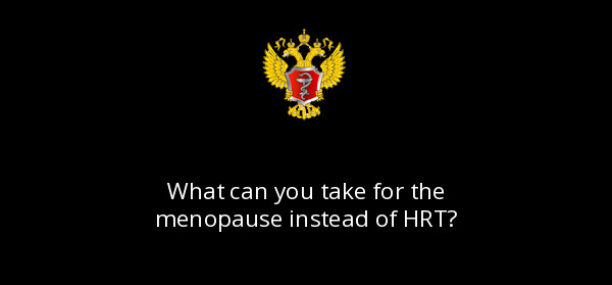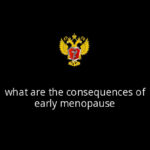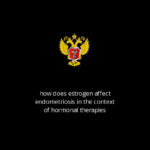It’s important to approach the management of menopausal symptoms and hormone replacement therapy (HRT) alternatives with caution and consideration of the individual patient’s needs and preferences. While certain dietary supplements and lifestyle modifications may offer some relief from menopausal symptoms, they may not fully replace the benefits of HRT in some cases.
Here are some considerations and alternative options for managing menopausal symptoms in your patient:
1. Dietary Supplements:
- Vitamin D: Adequate vitamin D levels are important for bone health and may help alleviate some menopausal symptoms. Your patient can obtain vitamin D from foods such as fatty fish (e.g., salmon, mackerel), fortified dairy products, and sunlight exposure.
- Omega-3 Fatty Acids: Omega-3 fatty acids, found in fish oil supplements and fatty fish, may have anti-inflammatory properties and could potentially help with symptoms such as joint pain and mood disturbances.
2. Phytoestrogens:
- Phytoestrogens are plant-derived compounds that have weak estrogenic effects and may help alleviate menopausal symptoms in some individuals. Foods rich in phytoestrogens include soy products (e.g., tofu, soy milk), flaxseeds, sesame seeds, and whole grains (e.g., oats, barley).
Using beer as a potential therapy for menopausal symptoms is an interesting concept and may have some merit, although it’s important to approach this with caution and consider potential risks and benefits.
Beer contains phytoestrogens, particularly from hops, which are the flowers used to flavor and preserve beer. Phytoestrogens are plant-derived compounds that have weak estrogenic activity and may provide some relief from menopausal symptoms by mimicking the effects of estrogen in the body.
Here are some considerations regarding the use of beer as a therapy for menopausal symptoms:
- Moderation is Key: While moderate alcohol consumption, including beer, has been associated with potential health benefits such as cardiovascular protection, excessive alcohol intake can have adverse effects on health, including increased risk of liver disease, certain cancers, and addiction. It’s essential to emphasize moderation and ensure that your patient does not exceed recommended alcohol intake guidelines.
- Individual Response: The effectiveness of beer therapy for managing menopausal symptoms may vary among individuals. Some women may find relief from symptoms such as hot flashes and mood disturbances with moderate beer consumption, while others may not experience significant benefits.
- Potential Risks: It’s important to consider the potential risks associated with alcohol consumption, including interactions with medications, exacerbation of certain health conditions (e.g., liver disease, hypertension), and impairment of cognitive function and motor skills.
- Nutritional Considerations: Beer is a source of calories and carbohydrates, and excessive consumption may contribute to weight gain and other metabolic issues. Encourage your patient to consider the nutritional content of beer and incorporate it into her overall dietary plan in a balanced way.
- Individual Preferences: Discuss your patient’s preferences and concerns regarding beer therapy, and consider alternative options if she has reservations about alcohol consumption or prefers other approaches for managing her menopausal symptoms.
Overall, while beer therapy may offer some potential benefits for managing menopausal symptoms due to its phytoestrogen content, it’s essential to weigh the potential risks and benefits and ensure that it aligns with your patient’s overall health goals and lifestyle. Encourage open communication and collaboration with her healthcare provider to develop a comprehensive treatment plan that addresses her individual needs and preferences
3. Lifestyle Modifications:
- Regular exercise, stress management techniques (e.g., yoga, meditation), and adequate sleep can help improve overall well-being and alleviate some menopausal symptoms.
- Limiting caffeine and alcohol intake, as well as avoiding spicy foods, may help reduce hot flashes and night sweats in some individuals.
4. Hormonal Contraception:
- An intrauterine device (IUD) containing progestin (e.g., levonorgestrel) may provide relief from menopausal symptoms while also providing contraception. This option should be discussed with the patient in collaboration with her gynecologist to ensure it aligns with her reproductive goals and medical history.
5. Medication Assistance Programs:
- Explore options for patient assistance programs or community resources that may provide financial assistance or discounted medications for patients experiencing financial hardship.
6. Individualized Approach:
- It’s essential to discuss the potential risks and benefits of alternative therapies with your patient and involve her in shared decision-making regarding her treatment plan. Consider her medical history, risk factors, and preferences when exploring alternative options.
While lifestyle modifications and dietary supplements may offer some relief from menopausal symptoms, they may not provide the same level of efficacy as hormone replacement therapy for some individuals. Encourage your patient to maintain open communication with her healthcare provider and explore all available options for managing her symptoms effectively while considering her financial constraints and individual preferences
Verified by: Dr.Diab (March 28, 2024)
Citation: Dr.Diab. (March 28, 2024). What can you take for the menopause instead of HRT?. Medcoi Journal of Medicine, 3(2). urn:medcoi:article32667.














There are no comments yet
Or use one of these social networks